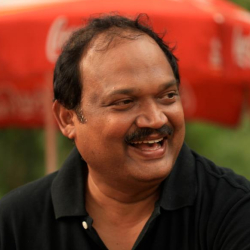Personal Finance for you & me – Dr.R.V.Murali
“Academic qualifications are important and so is financial education. They are both important and schools are forgetting one of them “ – Robert Kiyosaki.
Suggestions given in this article are
based on facts gathered and experienced by the author since 1989. However,
before you take a MAJOR FINANCIAL DECISION, please consult a certified
financial planner.
Buckminster Fuller defines wealth as the number of days you can survive without physically working and still maintain your standard of living.
My financial goal in 1989 when I was 25 years old, was to become a HNI by the next 25 years and I achieved it [ A High Networth Individual is one who is worth US $ 1 Million not taking into account the house you live in ]
This is not by earning and saving alone but wisely investing. Jim Rohn says the Rich invest their money and spend what is left, but the poor spend their money and invest what is left.
Robert Kiyosaki says an Asset puts money into your pocket and a Liability takes away money from your pocket. Stocks, Shares, Deposits, Commercial rental spaces are examples of assets. Car, Second apartment are liabilities and your residential house and jewellery are dead assets.
It is reasonable to assume your Startup years are between 25 & 35 years, Peak earning years are between 36 & 50 years, Consolidation years between 50 & 55 years and retirement years could be between 56- 65 years and above. Investments during the different periods of time will differ.
During the start-up years, the income could be from employment, practice or consultation or a combination. In this stage, work really hard to generate maximum income. As you earn, learn to allocate money for investment also. Ideally, personal and household expenses should not exceed 35% of your net income, Savings for some specific reasons 35 % [Children’s education, marriage, retirement corpus ] investment 20% and emergency fund 10%
Learn about gross income and net income. If your total earnings in a month are 3 lakhs/month, it is your gross income. After deducting all expenses, the remaining amount is your net income. In this case, it could be approximately 1.5-1.8 lakhs as the expenses are usually 40-50%. If your gross income is 1 lakh/month, net income will be 50000 – 60000 only. Have the financial discipline to live within 1/3rd of your net income, save 1/3 for specific future needs, 1/5 for investment and remaining 2/15for emergencies.
Set some financial goals. An example: By the age of 50, I will have a house worth 50-75 lakhs; Corpus of 25 lakhs for children’s education; another 25 lakhs for children’s marriage; a retirement the income of 1-2 lakhs/month at age 60, taking inflation into account.
Things to do when you are between 25 & 35 years:
1. Take medical insurance.
2. Take Life Insurance – a pure term policy worth 1 crore up to age 70 for risk coverage. Avoid endowment policies.
3. Contribute to Public provident fund.
4. Start Post office recurring deposit.
5. Systematic Investment Plan in mutual funds.
Things not to do between 25 & 35 years :
1. Do not buy an expensive car.
2. Do not buy any expensive gadgets.
3. Do not buy an expensive house on a loan.
Insurance needed for you:
1.Pure term policy for at least 2 crores - premium around Rs. 20000/- per annum. Tax-deductible.
2. Health insurance for 25 lakhs- premium Rs.25000 / per annum. Tax-deductible.
3. Retirement / Pension Scheme – premium Rs.10000 / per annum. Tax-deductible.
4. House holder’s Policy
Good loans are those for business, buying
a home, educational loans. Bad loans are car loans, loan against property,
personal loans & credit card loans.
Build a retirement corpus that gives a
steady real rate of returns beating inflation and income tax.
Investments can be under various
categories - like stability, safety, and aspiration baskets; stability basket
will contain Lifestyle, children's expenses, and retirement expenses. Safety
basket has Fixed Deposit, Liquid funds, Low-risk volatile funds, insurance, and
emergency corpus. The aspirational basket has high-risk private equity [above
market-level returns ] There is a correlation between risk and returns. If you
want high returns, you should be willing to take risks. There is no such thing
as a safe investment. Every investment has a risk.
You definitely need a team of experts: a
certified financial planner, chartered accountant, banker, real estate agent,
insurance agent, lawyer and yourself should be in the Financial
management team. Pay for their advice.
Wealth is created by proper asset
allocation. Equity assets [ shares, debentures, and mutual funds ] should be
100- your current age in percentage. Real estate should be around 25%. Gold can
be 5-10 % Cash and cash equivalents like Fixed deposits can be between 10-15%.
Once in six months, this asset allocation should be reviewed and at least once a
year rebalancing should be done to create long term wealth.
Suggestions for the beginners :
1. Start a Demat account for stocks/ mutual funds.
2. Subscribe to a financial magazine.
3. For Children’s education, start investing Rs.10,000/ month from the month the baby is born. [upto 25000/- tax deductible]
4. For children’s marriage, start investing Rs.10,000/ month from the month the baby is born.
To contact author and to Organise a wealth creation Seminar Murali DR.R.V <[email protected]>
Happy Wealth Creation!

